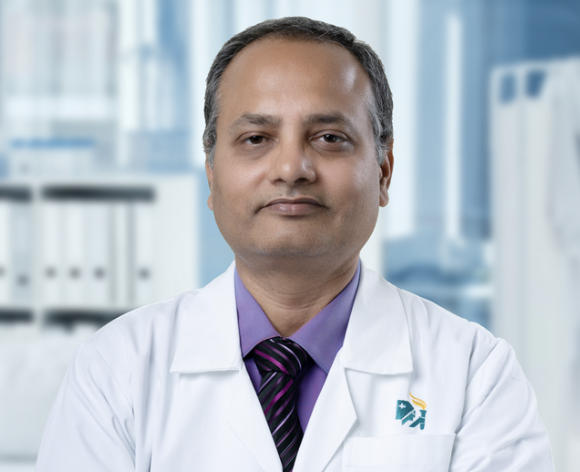Could not find what you are looking for?
- Health Library
- What Is a GIST?
What is a GIST?

GIST stands for Gastrointestinal Stromal Tumor, which is a rare type
of cancer that occurs in the gastrointestinal (GI) tract, primarily in the
stomach or small intestine. It belongs to a group of tumors known as soft
tissue sarcomas, which develop in the connective tissues of the body.
Specific characteristics of GIST
GISTs arise from specialized cells called interstitial cells of Cajal
(ICC), which are responsible for regulating the contractions of the GI tract.
These tumors can be benign (non-cancerous) or malignant (cancerous), with the
majority being malignant. GISTs can vary in size and aggressiveness, and their
behavior is determined by several factors, including the size, location, and
mutation status of the tumor.
One of the key features of GISTs is the presence of mutations in a
specific gene called KIT or PDGFRA. These mutations activate certain signaling
pathways, leading to uncontrolled growth and division of the tumor cells.
Testing for these mutations has become an essential part of diagnosing GISTs
and determining the most appropriate treatment strategy.
What are the symptoms of GIST?
The symptoms of GISTs can vary depending on the location and size of
the tumor. Some common symptoms include:
- Abdominal pain or discomfort
- Gastrointestinal bleeding
- A feeling of fullness, nausea, vomiting, and
unexplained weight loss. - However, in some cases, GISTs may be asymptomatic
and discovered incidentally during medical examinations or procedures.
GIST treatment
- The treatment of GISTs typically involves a
multidisciplinary approach, involving surgical resection of the tumor whenever
possible. For localized or smaller tumors, surgery may be curative. - However, in cases where the tumor has spread to
other organs or has a higher risk of recurrence, additional treatments such as
targeted therapies may be used. Targeted therapies, such as tyrosine kinase
inhibitors (TKIs) like imatinib, are designed to inhibit the activity of the
abnormal signaling pathways caused by the mutations in KIT or PDGFRA.
In recent years, significant advancements have been made in the
understanding and treatment of GISTs. Research has led to improved diagnostic
techniques, a better understanding of the molecular basis of the disease, and
the development of new targeted therapies. These advancements have
significantly improved the prognosis and outcomes for individuals with GISTs,
offering hope for better management and increased survival rates.
Apollo Hospitals, Navi Mumbai, offers advanced oncology services for
the assessment, management & prevention of complex as well as rare cancers.
From world renowned cancer surgeons, state-of-the-art infrastructure to the
most advanced 4th generation Da Vinci Xi robotic system for a
comfortable recovery after surgery and Radionuclide therapy for thyroid cancers,
Apollo Hospitals, Navi Mumbai, has the best cancer centre in Mumbai.
Consult expert cancer surgeons in the best cancer hospital in Mumbai.














